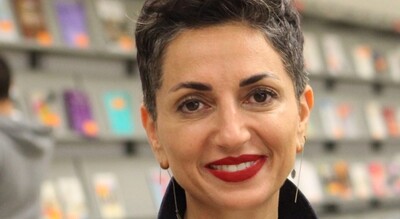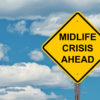International Women’s Day… I still hate you.
I wrote last year that I hate International Women’s Day. It resonated with so many of you that here I am, writing it again. Why?! Because nothing has changed.
Oh, wait. Actually some things have changed. Let me tell you how. Things have gotten WORSE.
But aren’t we closer to equality, you think?! I would have thought so too. And yet, the world’s gender gap has gotten wider.
WIDER.
In 2020, we needed 100 years to close the gap. Now we need 136 years. Anyone planning to be around for this event — for the long-overdue closing of a gap that should have never existed in the first place?! I will not. But that doesn’t mean I’m not going to get angry. I’m still angry.
So let’s bring out another International Women’s Day — because, if we dedicate one-day-a-year to fighting for equality, I’m sure things will move that.much.faster. Why don’t you smile, girls?! 136 years is just around the corner!
Rinse and repeat.
So, here I say again: I hate International Women’s Day. I hate the one-day-every-year that we are supposed to remind ourselves of how far we’ve come — and how far we’ve got to go for equality. Did we need reminding? Even worse to be told “happy” International Women’s Day. What, precisely, is “happy” about it? We are still not equal. How can I be happy about that?
WTF is International Women’s Day, anyway?! Quick history lesson: International Women’s Day started in 1911, when women — and men — took to the streets to demand rights for women to work, to vote, and to hold public office. It’s important, no doubt, but here we are — 111 years later — still making very similar demands!
And, arguably, losing ground.
Quick reality check: All around the world, women and girls are still not able to fully participate in all aspects of social, economic, and political life. They have less choice and less voice — and are further burdened with the responsibility of rectifying this imbalance. Achieving equality is viewed as “women’s work”. As if we caused this mess in the first place.
Here’s the thing: Gender equality is both a human rights principle and a precondition for a safe, just, sustainable future. A future I’d like to see materialize. Like, now.
We’ve got all the right language, but rhetoric and reality remain far apart. And here we still are — marinating in inequality.
So please, don’t “Happy International Women’s Day” me. Not yet.
Anyway, what exactly are we celebrating? Put down the Prosecco and hear these sobering stats instead:
In our world today, the majority of children who are out of school are girls. Child marriage is far too common, happening far too often — just about everywhere (yes, even in the US). Women’s unemployment is higher than men’s. Women do the majority of unpaid work and when they do work — they earn far less than men, in every occupation. In positions of power and decision-making, inequality is most visible because women are rendered virtually invisible. What bothers me most, is violence against women. One in three women and girls worldwide will experience some form of violence against women in their lifetime. One.In.Three.
And COVID has made all of the above so.much.worse.
I’ve written about some pretty crappy things lately: our disappearing reproductive rights, rape as a weapon of war in the Tigray crisis, Ukrainian women on the frontlines of our new war, Afghan women still on the frontlines of a decades-old war, and much more.
I don’t need to tell you what the world looks like for women, do I?!
OK, hang on. I will.
Economically, we’re an under-utilized force, still relegated to feminized sectors, still fighting the wage gap, still the majority of the informal economy, still bearing the burden of unpaid care. In fact, more than 75% of unpaid care is dumped on women. And women represent only 27% of managerial positions around the world. I read somewhere that there are more CEOs named John than female CEOs… I can’t even.
We need a whopping 268 years to get to equality here.
Politically, we’ve declined. Women hold even less positions of power, leadership, and decision-making. Only 26% of the world’s parliamentary seats are occupied by women. And only 23% of the world’s 3,400 ministers are women. 81 countries have never had a woman head of state. They’d probably be a lot better off if they had!
It will take 146 years to close the political gender gap.
Education and healthcare are improving, although not fast enough. The majority of children who are out of school are girls. The majority of people who are illiterate are women. Two-thirds, in fact. That’s nearly half a billion women and girls who still cannot read or write.
Inequality runs deep. More than 2.5 billion women live in countries with discriminatory laws — literally, laws on paper that fail to view women as equals. In 100 countries, laws restrict the type of work women can do — for example needing permission from their husbands before pursuing a new job. Women are more likely than men to live in extreme poverty. Women are hardest hit by conflicts and insecurity. And the least represented in peace and security. I will say again: There is NO peace without women.
I am a broken record. Here’s another one that I will repeat every day until it sinks in and we fix it: Violence against women — one in three! And this underestimates reality. I for one do not know a single woman who doesn’t have a story. More than 80% of us have experienced some form of sexual harassment. Let’s not even talk about rape — too often, too common.
And there are more insidious forms: sexual slavery, honor killings, female genital mutilation. Four million girls are at risk of FGM every year — with an additional 2 million as a result of COVID. Girl-child marriage still happens everywhere. Every year 15 million girls are married before the age of 18 — that’s 40,000 girls forced into marriage every day. And an additional 10 million as a result of COVID — because that’s how we cope with a global pandemic, right?!
The global cost of VAW is $1.5 trillion. TRILLION. And the world seems to be ok with paying that price — ok with women paying that price — otherwise we’d be doing more to end it.
So I can not — WILL not — say “happy” International Women’s Day when we fight day after day and year after year for the same rights and respect that we should have always had, when women are still restricted in every aspect of our lives, when we are denied choice over our own bodies, when women cannot be safe in public or private space, when women still experience violence and discrimination, when the justice system fails women, when our voices are ignored or denied, when women in senior positions are still the exception and the “first” — rather than the norm. Should I go on?
Why am I poo-pooing the party, you wonder? Well, I have worked for women’s rights for more than 25 years. 25 x 365 = 9125. That’s kinda a lot of days.
Last year I howled about all the crap I hate: flowers and cupcakes and cards and events that women have to organize — as an unwelcome add-on to our unpaid labor.
And why don’t we have an International Men’s Day?! And all the whatabboutery thrown at us on our so-special day: What about these people? This issue? Those things? These causes?
What about letting us talk about women sometimes — and being ok with that?!
Women are not an add-on or a side event or an afterthought. They are not a “day”. No-thank-you for the charade. I’m not playing games here. I usually have a good sense of humor. Not today. And this woman surely is not “happy” about women’s rights right now.
Personally, I don’t need a day to celebrate my feminist sisters or to refuel for the fight. It’s my whole damn life.
Let’s try to end on a constructive note. There’s stuff you can do. No — there’s stuff you HAVE TO DO. Wake up, look around, read/listen/learn. Take it personally. Take action. Use your voice. Amplify others.
Get angry.
Until we’ve achieved equality, it’s International Women EveryDay.
Please don’t make me repeat this rant next year.
Posted with permission by Lina AbiRafeh.
Check out this article and more at Lina’s Medium page. Plus, interested in having Lina speak with your group or learning more about her work. Go to her website and read more.





